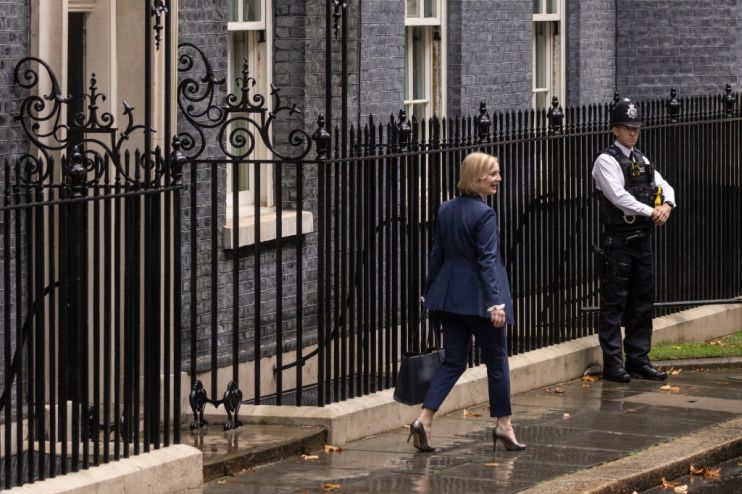Astonishment as Liz Truss fails to mention today’s Bank of England emergency move during Cabinet meeting

There is widespread astonishment among City analysts and Westminster insiders as Liz Truss failed to discuss the Bank of England’s latest emergency move with her Cabinet this morning.
Downing Street said this afternoon the Bank of England’s latest intervention did not come up at Tuesday morning’s Cabinet meeting, nor did uprating benefits.
Asked if the central bank’s action to ease market turmoil was discussed, Truss’s official spokesperson said: “No, it wasn’t … They talked about the growth plan and the importance of that.”
Moreover, Downing Street has refused to comment on the IFS think tank’s warning that Kwasi Kwarteng will have to find spending cuts of more than £62bn or reverse tax cuts if he is to meet his target to get the public finances back under control.
The Prime Minister’s official spokesperson said: “I think it will be for the Chancellor to set out the Government’s position on the 31st (October), I’m not going to pre-empt that.
“Obviously we are committed to fiscal responsibility and getting debt falling as a share of GDP.”
The official was asked if Truss remains committed to not raising any taxes.
“The Chancellor set out our position on tax and reducing the tax burden,” he said, saying the Government’s position “has not changed”.
He added that “future funding for departments is a question for the Chancellor at future fiscal events” and that he was “not aware of any plans to reopen this spending review”.
No return to austerity
Also, Downing Street has said that there will be no return to austerity under a Liz Truss government.
Boris Johnson as prime minister had previously insisted the UK would not be returning to an austerity era.
The Prime Minister’s official spokesman, asked if Ms Truss stood by the commitment, said: “Yes.”
He continued: “Clearly we recognise in the first instance it will be the Chancellor who comes forward with our medium-term fiscal plan, we will set out our position then.
“These are challenging times and we have made significant interventions costing many billions to provide the necessary support to protect people from these global challenges.
“Obviously that will require some decisions on spending, but it will be the Chancellor who comes forward to set those out.”